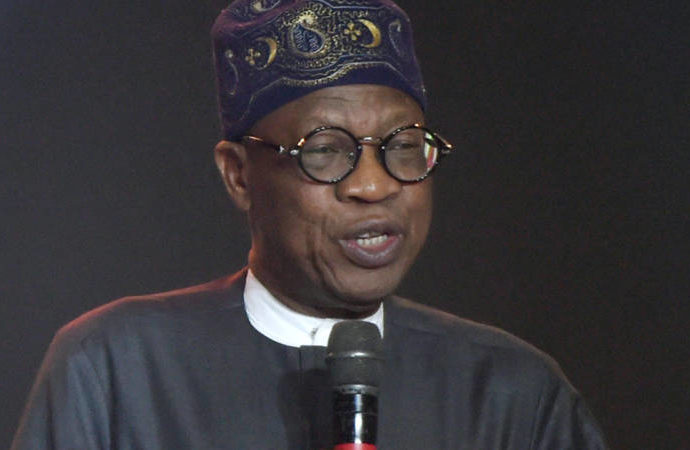The Minister of Communication, Alhaji Adebayo Shittu has hinted the Nigerian government will make statutory legislation to compel Nigerian entities to patronize the country’s satellite company, Nigerian Communications Satellite Limited (NIGCOMSAT).
The Communication Minister hinted on this while addressing State House correspondents after a closed-door meeting with President Muhammadu Buhari at the Presidential Villa in Abuja on Wednesday.
He said part of his meeting with the President was to update him on the approved procurement of two new satellites from China at the cost of 550 million dollars.
Shittu revealed the China EXIM bank had agreed to pay the entire 550 million dollars for the procurement of the satellites.
He, however, explained that the initial agreement was that the China EXIM bank would provide 85 per cent of the total cost ($550 million) while Nigeria would pay the remaining 15 per cent as counterpart funding for the projects.
He stated that as Nigeria could not be able to meet her obligation in paying the counterpart funding, the agreement was renegotiated with the China EXIM bank and the manufacturer of the satellites, the China Great Walls.
“Initially the agreement was that they will provide the cost of the two satellite 550 million dollars minus 15 per cent which is the counterpart funding.
“Because we could not afford this 15 per cent, we have renegotiated with the China EXIM Bank and the China Great Walls who are the manufacturers and they have happily agreed to pay the entire $550 million to procure two new satellites,” Shittu said.
The minister stated that the new satellites would ensure that the Nigerian satellite company would conquer the entire African continent in regard to the provision of satellite communication services.
He said that the Chinese had appreciated the potential market that existed in the satellite business in Nigeria and the African continent.
“This is a very big business opportunity and I am sure that the Chinese appreciate the potential market which is so vast and that is why they have agreed that even without our ability to contribute 15 per cent they are prepared to pay the entire sum of $550 million for the procurement of the two new satellites for Nigeria,’’ he added.
Shittu revealed that the production of the satellites would commence immediately the final agreements were signed.
“It takes two years to produce because it is when we sign the papers they will start production.
“We hope that before the end of this month we will sign the papers and then they will commence the production. It is the completion of the production that the two satellites will be launched, he said.
He added that Nigeria had nothing to lose because the country would not put anything into the project in terms of financial resources.
“The president was excited and was not surprised because the Chinese are not just going to market our satellite to the entire African continent but also perhaps by legislation insists that all Nigerian entities must patronize the Nigerian satellite company rather than going to Israel, UK, US for satellite services.
“Now we can say by our local content policy we must patronize Nigeria. The major issue is not about employment but by providing satellite services to all companies which require it.
“Currently most Nigerian companies and even Nigerian government establishments patronize foreign satellite companies.
“So the first thing is that we want to make profit, we want to capture the local market and we also want to capture the African market,” he said.


